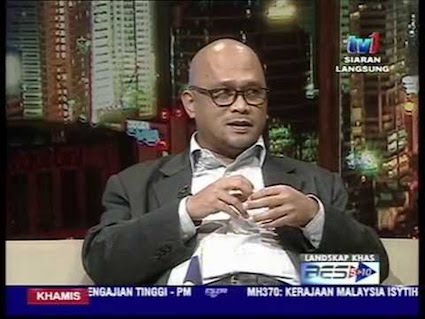Reformasi Untuk Mahathir

SeaDemon Says
Mahathir’s return to politics in 1973 was watched closely by other races, in particular the Chinese and Indians. His meteoric rise to the Deputy Prime Minister’s post in 1976 was of grave concern by many. His imminent Premiership caused a large number of migration by Malaysian Chinese. Despite the economic growth in the late 1980s through 1997, some 42,000 Malaysian Chinese opted to work elsewhere. This number includes some 14,000 Malaysian Chinese who were working illegally in Japan in 1993 (Shimada, 1994).
”If citizenship is conferred on races other than the Malays, it is because the Malays consent to this,” wrote Mahathir in his book ‘The Malay Dilemma‘.
“The Chinese and Indians coming from countries with vast populations are less concerned about good behavior and manners. In their lives, nobility, which is always associated with breeding, was totally absent. Age and riches are the only things they defer to,” he added.
Calling for reforms such as the mandatory use of tamper-proof scales, Mahathir wrote of scales that can be used to shortchange customers and said, ”The small-time Chinese retailer is adept at this practice and unscrupulous enough to use it as a weapon in competition.”
Mahathir was the ultra-Malay to many including the Malays themselves. Fears of race clashes haunted the voters during the run-up to the 1982 General Elections. I remember being sent to Mimaland in Gombak with Datuk Latt Shariman (President, E-Sports Malaysia) on polling day in case something bad happens. It was the first General Elections under Mahathir and it was called more than a year before the then-mandate ended. Public rallies were banned citing ‘security’ reasons and only indoor gatherings and house-to-house canvassing were allowed (Lim Kit Siang, 22 March 1982).
Even though Malaysia’s economic growth peaked at 8 percent in the mid 1990s, it was mired in scandals involving the practice of cronyism and nepotism. Lim Kit Siang wrote that Mirzan, Mokhzani and Mukhriz Mahathir – acted as companies’ directors, and that according to searches the DAP had made at the Registry of Companies at the end of 1994, Mirzan had interests in 98 companies, Mokhzani in 48 companies and Mukhriz in 67 companies (Lim Kit Siang, 16 June 1998). Compared to the 213 companies his sons were directors in back in 1994, 488 is the number of companies Mahathir, daughter and sons are directors in as at end of 2016 (Wakeup Malaya, 6 January 2017).
The calls for Mahathir to resign in 1998 for practising nepotism and cronyism culminated in the sacking of Anwar Ibrahim as his deputy in September of the same year, accusing the latter not only of being a tool for George Soros’s attacks on the country’s financial system but also for leading a morally-corrupted life. Lim Kit Siang and other Opposition leaders were quick to embrace Anwar, acccepting him into their fold when it was just a year earlier that the late Karpal Singh had made mention of allegations of sexual misconducts against Anwar in a Parliamentary sitting – a scene not much different to Lim Kit Siang’s immediate acceptance of Mahathir after decades of mudslinging the latter.

